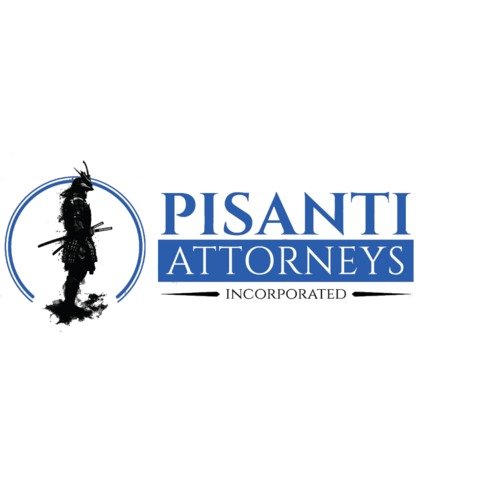Best Constitutional Law Lawyers in Germiston
Share your needs with us, get contacted by law firms.
Free. Takes 2 min.
List of the best lawyers in Germiston, South Africa
About Constitutional Law in Germiston, South Africa
Constitutional Law in Germiston, South Africa, is part of the broader legal framework enforced throughout the country. South Africa's Constitution, promulgated in 1996, is the supreme law of the land. It sets out the rights and freedoms of individuals and governs relations between the state and its citizens, ensuring everyone is treated fairly and justly. In Germiston, a city within the Gauteng Province, the principles of Constitutional Law are applied through various courts and legal institutions, ensuring that the rights enshrined in the Constitution are upheld.
Why You May Need a Lawyer
There are several situations where individuals in Germiston may require the expertise of a lawyer specializing in Constitutional Law. These include cases involving human rights violations, discrimination, unlawful detention, freedom of speech issues, or challenges to government actions that may infringe constitutional rights. For instance, if you believe your right to privacy has been violated by governmental authorities, a Constitutional Law lawyer can provide guidance and representation.
Local Laws Overview
While the Constitution of South Africa is uniformly applicable across the country, certain local factors influent its application in Germiston. The city falls under the jurisdiction of the Gauteng Provincial government, which works alongside national and local municipalities. Key aspects of constitutional relevance include the enforcement of socio-economic rights, property rights, and ensuring equitable access to justice and public services. Local ordinances and regulations must align with constitutional provisions, ensuring they serve the public interest without infringing on constitutional rights.
Frequently Asked Questions
What is Constitutional Law?
Constitutional Law deals with the interpretation and application of the country's Constitution, focusing on protecting the rights and freedoms of individuals and ensuring government acts within its constitutional limits.
Can I challenge a law that I believe is unconstitutional?
Yes, individuals can challenge laws they believe are unconstitutional through legal proceedings. A Constitutional Law attorney can guide you in presenting your case before relevant judicial bodies.
What are my rights under the South African Constitution?
The Constitution enshrines a Bill of Rights, which includes rights to equality, human dignity, freedom of speech, privacy, access to information, and more.
How do I know if my rights have been violated?
If you feel that your fundamental rights, as outlined in the Constitution, have been infringed upon by an act or omission of the state or any other party, you may have experienced a violation.
What is the role of the Constitutional Court?
The Constitutional Court is the highest court in South Africa regarding constitutional matters. It ensures laws and conduct are consistent with the Constitution and resolves disputes arising from constitutional interpretation.
Who can file a case with the Constitutional Court?
Any individual or group whose constitutional rights have been violated may file a case, provided they have sought remedies through lower court systems first.
What steps are involved in proving a constitutional rights violation?
To prove a violation, you generally must show that a right has been infringed and that such infringement is not justifiable in an open and democratic society based on human dignity, equality, and freedom.
Can the government restrict my rights?
Some rights can be lawfully restricted under certain conditions, such as public interests or national security, but such restrictions must be reasonable and justifiable in terms of the Constitution.
What are socio-economic rights?
The Constitution guarantees rights that relate to the basic needs of citizens, such as access to housing, healthcare, food, water, and social security.
Where can I access free or subsidized legal services for Constitutional issues?
Free or subsidized legal services are often available through legal aid organizations and university law clinics. These services are aimed at ensuring access to justice for those who cannot afford private legal counsel.
Additional Resources
For additional information and assistance, you may consider contacting the following resources:
- Legal Aid South Africa - provides legal assistance to eligible individuals.
- Law Society of South Africa - offers guidance on finding qualified legal practitioners.
- Constitution Hill in Johannesburg - is a center for education and advocacy on constitutional rights.
- South African Human Rights Commission - investigates and addresses violations of human rights.
Next Steps
If you require legal assistance in Constitutional Law, start by identifying the specific nature of your legal issue and gather all relevant documentation. Contact a qualified Constitutional Law attorney for a consultation. They will provide guidance on your legal standing and the appropriate steps to protect your rights. Remember, ensuring your rights requires prompt and informed action.
Lawzana helps you find the best lawyers and law firms in Germiston through a curated and pre-screened list of qualified legal professionals. Our platform offers rankings and detailed profiles of attorneys and law firms, allowing you to compare based on practice areas, including Constitutional Law, experience, and client feedback.
Each profile includes a description of the firm's areas of practice, client reviews, team members and partners, year of establishment, spoken languages, office locations, contact information, social media presence, and any published articles or resources. Most firms on our platform speak English and are experienced in both local and international legal matters.
Get a quote from top-rated law firms in Germiston, South Africa — quickly, securely, and without unnecessary hassle.
Disclaimer:
The information provided on this page is for general informational purposes only and does not constitute legal advice. While we strive to ensure the accuracy and relevance of the content, legal information may change over time, and interpretations of the law can vary. You should always consult with a qualified legal professional for advice specific to your situation.
We disclaim all liability for actions taken or not taken based on the content of this page. If you believe any information is incorrect or outdated, please contact us, and we will review and update it where appropriate.








